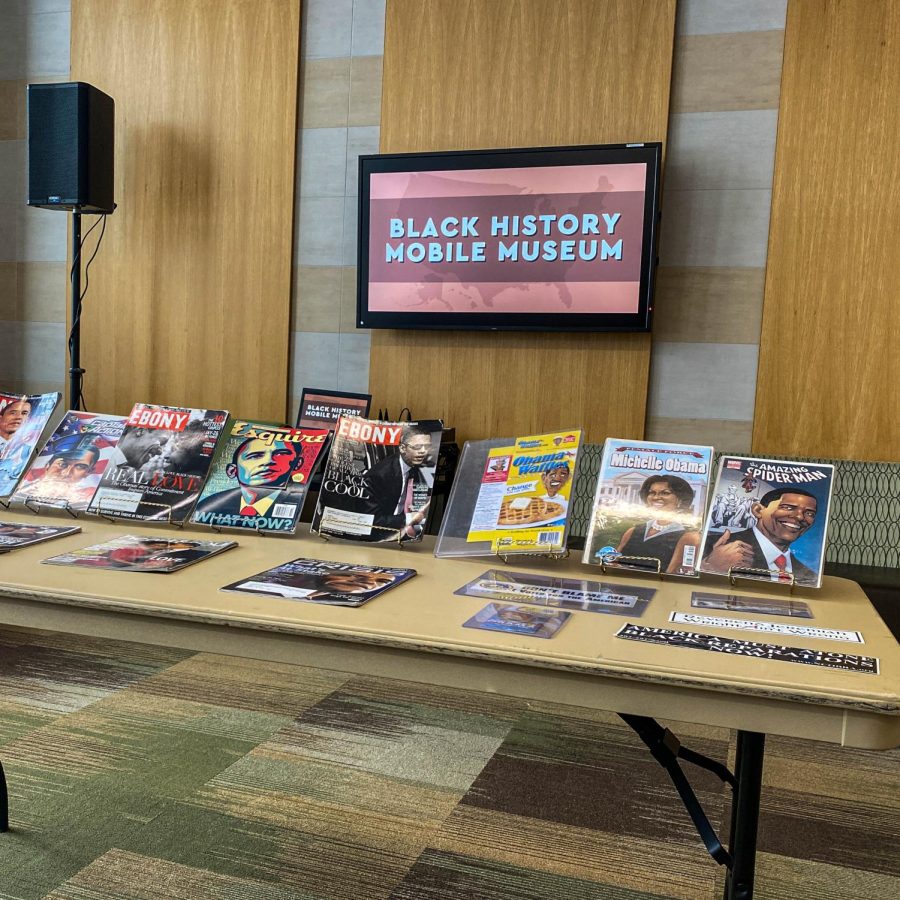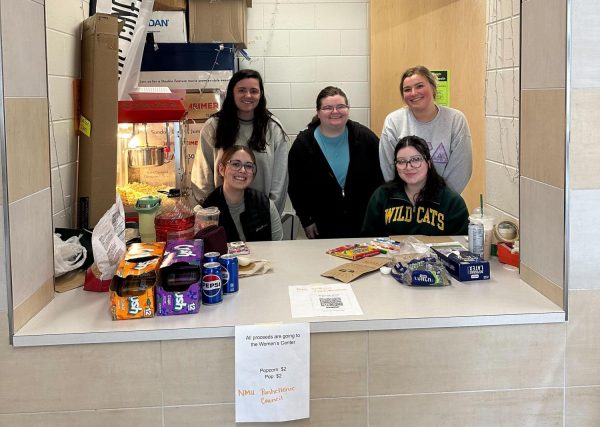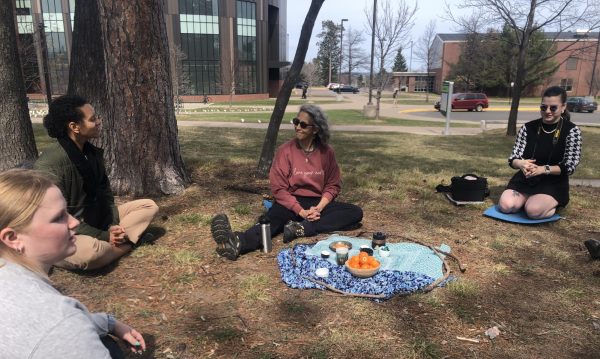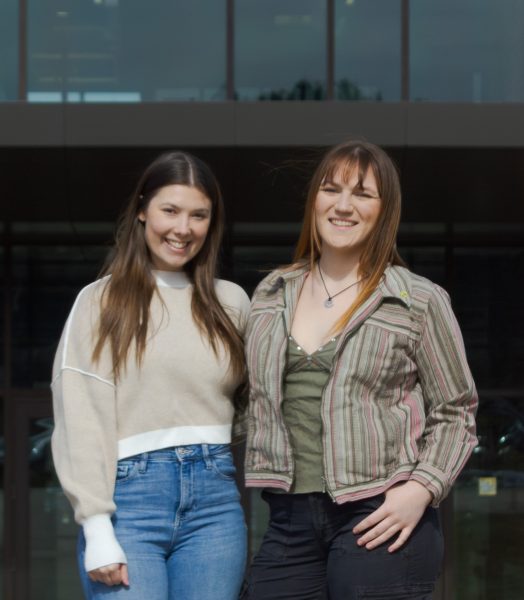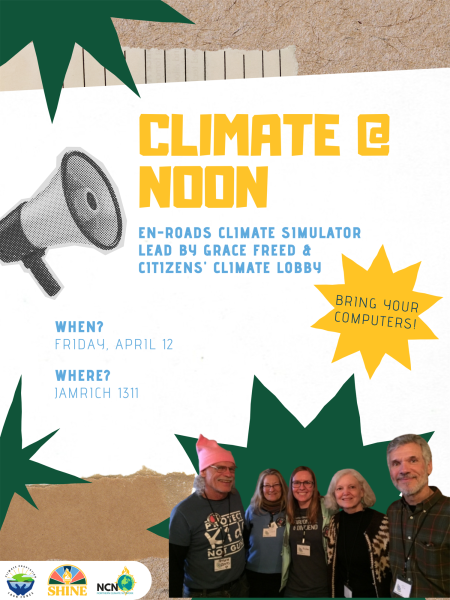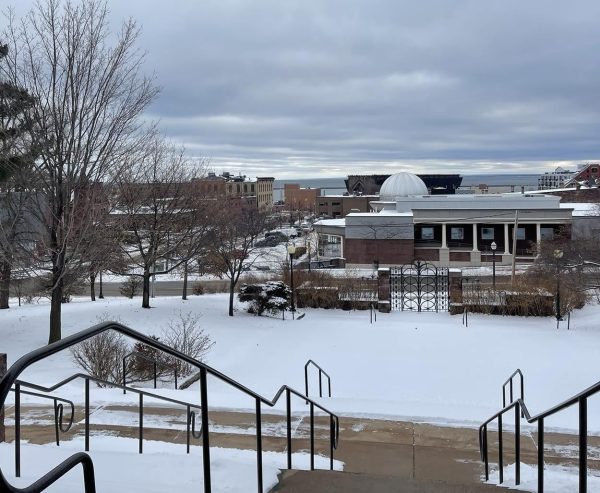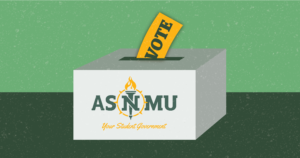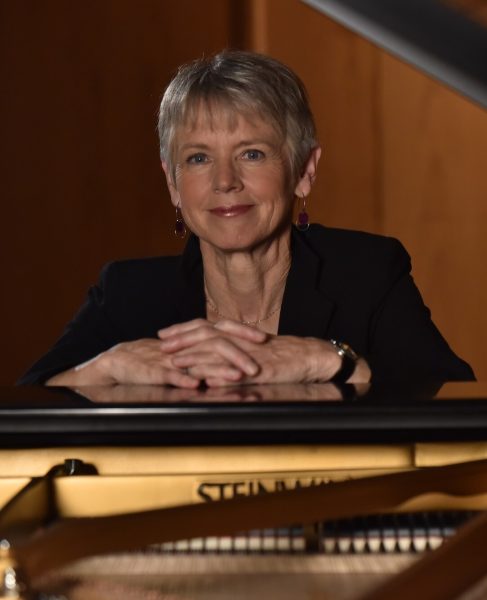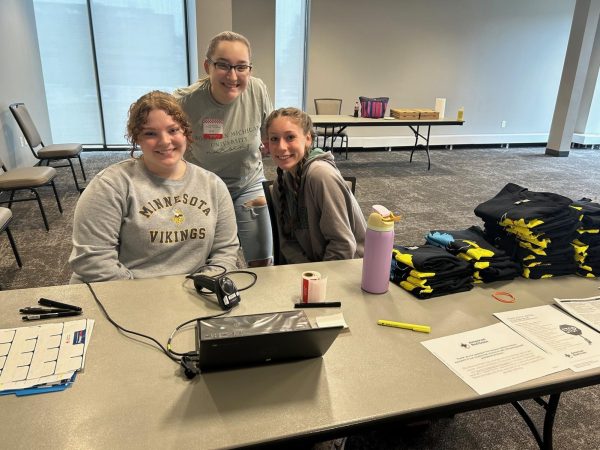Black history mobile museum visits NMU during Black history month
MOBILE MUSEUM – The Black Student Union presented the Black history mobile museum in Jamrich Hall Feb. 9 for the campus community to engage with Black history. The museum is an over 10,000-artifact collection collected by Khalid el-Hakim, Ph.D.
February 15, 2023
The Black History Mobile Museum was displayed in the Jamrich Hall first floor middle lobby on Thursday, Feb. 9, from 10 a.m. to 3 p.m.
As a part of Black history month at NMU, the Black Student Union (BSU) presented the mobile museum that “created an opportunity to engage with Black history in a way that inspires curiosity, invites change and expands the minds of participants” according to the BSU’s instagram, @nmu.bsu.
Khaleah Lowllun, BSU vice president, was one of the members of BSU volunteering at the display.
“We’ve seen a lot of students of all backgrounds and races coming up here,” Lowllun said. “Everyone seemed to be really interested in what was going on, so it has been a positive experience.”
The mobile museum was founded by Khalid el-Hakim, Ph.D. in Education from the University of Illinois (Urbana-Champaign), who has collected over 10,000 artifacts of Black memorabilia spanning several time periods, from the trans-Atlantic slave trade to the Jim Crow Era to hip-hop culture.
The collection features original rare artifacts and documents signed by historical Black figures, including Frederick Douglass, Booker T. Washington, Rosa Parks, Malcolm X., Martin Luther King, Jr., Angela Davis and many others.
The artifacts have been collected from all across the United States by el-Hakim over 30 years from various antique shops, flea markets, estate sales and auctions.
Artifacts presented at NMU included pieces of Michigan history, such as an engagement agreement signed at Kalamazoo Valley Community College and a Nelson Mandela poster from 1990 in Detroit, MI.
According to the museum’s website, the collection is displayed in non-traditional museum spaces to provide a safe space to have honest conversations about race and social justice.
“This is a month where Black people get to share their past, and that is what ties the mobile museum into our mission this month,” Lowllun said. “We want everyone to be able to, regardless of their skin tone, learn about each other’s past. Without moving from the past, we cannot move on as a people.”





















